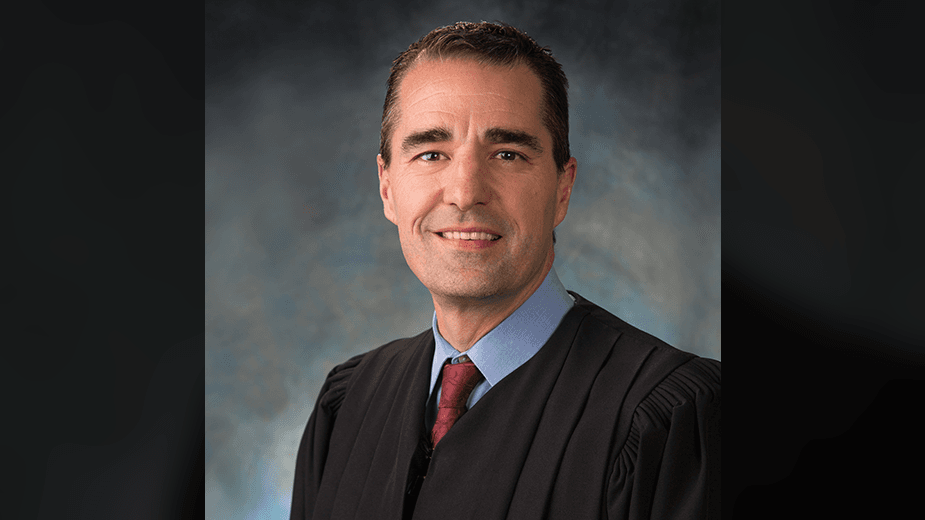YOUNGSTOWN, Ohio – With no end to the number of people in need of estate planning and other services of the Mahoning County Probate Court, Judge Robert N. Rusu Jr. has developed a training program for the next generation of attorneys.
Rusu says when he talks to many young attorneys about the areas of law they plan to practice, he finds that they lean toward criminal and divorce law.
Many are very unfamiliar and somewhat wary about getting into working with the probate court, which handles a list of services including trusts, wills, estate administration and guardianships.
“They are really young. They are really new. And they are scared to get involved in a new area of practice,” Rusu says.
At the same time a lot of the “seasoned” attorneys who have experience in probate court are getting older and retiring after the pandemic. Young attorneys are not as likely to stay in the area, either.
With the cost of getting a law degree and the amount of business in a smaller community like Youngstown, Rusu says, too many young attorneys gravitate toward Columbus, Cleveland or even Akron instead of staying here to practice.
”I’m not seeing that replenishment of people retiring or passing away with the younger lawyers. And it’s troublesome because I know that one thing that doesn’t stop is people dying,” Rusu says.
What began as a request from Community Legal Aid for Rusu to speak to a few of the younger attorneys has turned into a class that will provide continuing legal education [CLE] credits.
This fall, Rusu will go step-by-step through the estate administration process during four 90-minute sessions.
“I hope they get to understand my personality, what I like, how I want it. And it’s only going to help them.
Because it’s going to help their stuff move through quicker,” Rusu says, noting it is a way for him, with 25-years of probate experience, to pay it forward.
Premier Bank is sponsoring the estate administration class, which is being held around the lunch hour.
“We were happy to support such an event such as this that provides local attorneys with the chance to take classes for CLE credit,” says the Premier Bank Mahoning Valley market president, Josh Toot.
“We feel it’s important to attract and keep local young talent in the valley. We feel that makes the community stronger and with us as part of the downtown community, we thought it was a great fit.”
Premier Bank President and CEO Gary Small agrees that getting involved in the training program through Rusu’s court is consistent with the community bank approach of Premier, which contributed $440,000 last year to Mahoning Valley nonprofit and community organizations.
“We’re also in the business of asset management and trusts and so forth. So we have that natural tie and interest in the topic and the individuals being developed,” Small says. “There is no better place to be than on the ground floor to work with some of these folks just starting out and getting familiar with them and having them familiar with us.”
The bank’s wealth-trust division approached Judge Rusu, Toot says, and was trying to see if it could lend a hand. “The timing was right and this just fit what we were trying to do,” Toot says.
As they begin gathering for the class, the attorneys will be provided lunch, courtesy of Premier Bank.
Rusu hopes the lunchtime class will be more informal, prevent attorneys from having to miss or reschedule court hearings and give them another way to diversify their practices.
Although Rusu says some of the older attorneys already familiar with probate court also expressed interest in the class, he encouraged them to send their staffs instead.
By having their right-hand people competent to answer some of the questions clients may have about the procedures and help to prepare the paperwork, it will only make attorneys free to address the aspects of probate law that require an attorney’s attention.
In today’s online-access and do-it-yourself world, Rusu says there are people attempting to navigate the probate court process themselves. Probate court employees cannot answer many of their questions. The court, however, does provide a help desk.
The help desk, which was established before COVID-19, is funded by some of the discretionary funds in Rusu’s budget.
Young lawyers can make a reduced, hourly rate by manning the desk, answering questions and at least getting the paperwork into the right order. To encourage more attorneys to provide the service, Rusu is giving those who agree to provide at least four hours on the help desk a half-price registration for the course.
